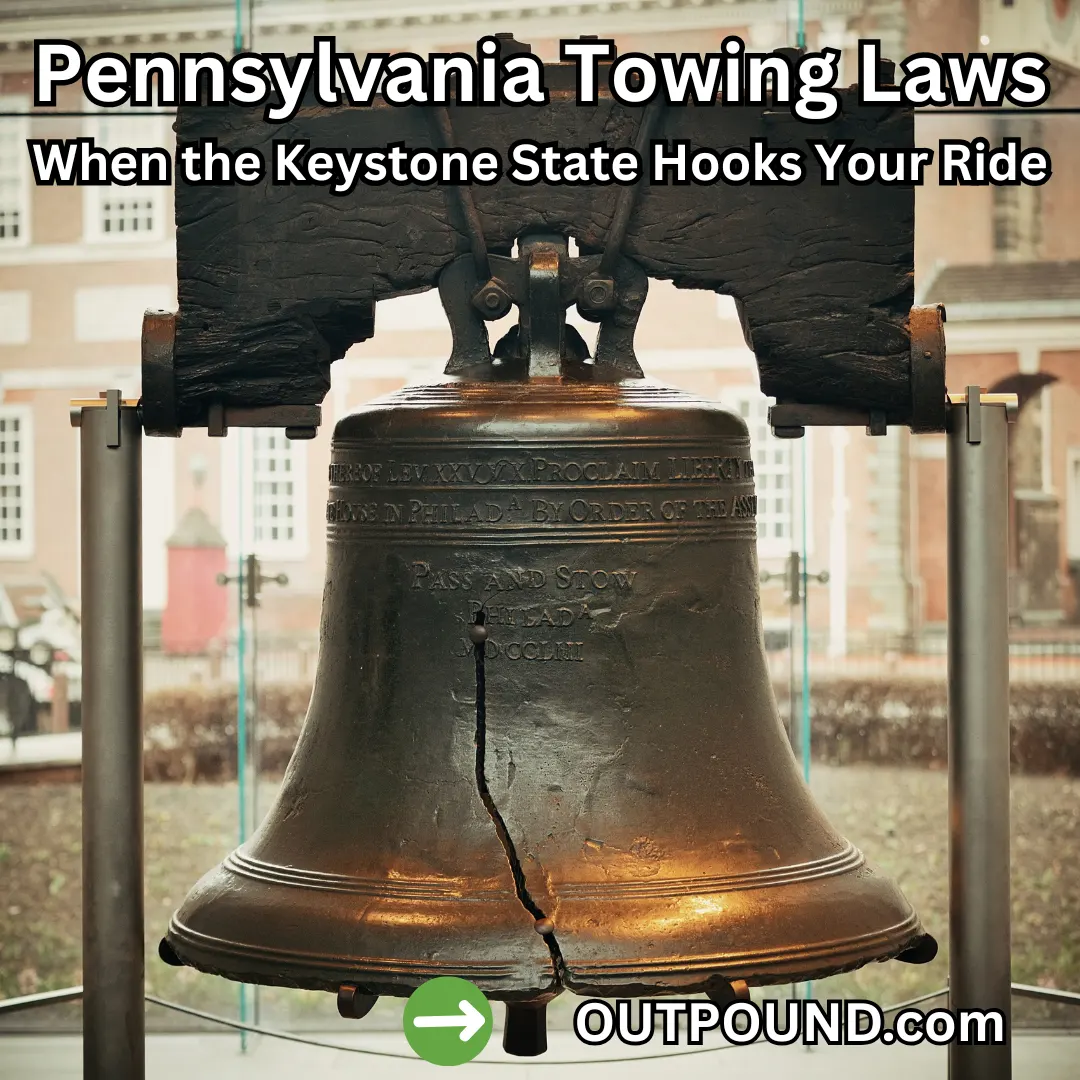When the Keystone State Hooks Your Ride

Pennsylvania: land of Philly cheesesteaks, historic cobblestones, and tow trucks lurking like history teachers ready to grade your parking skills. From the bustling streets of Philadelphia to the winding roads of Pittsburgh, one wrong meter, expired registration, or misread “No Parking” sign can send your car straight to an impound lot and your wallet into shock.
Who Can Tow?
In Pennsylvania, towing companies must be licensed by the state to operate legally. Tows can be initiated by law enforcement, municipalities, or private property owners. That means a city cop can order your car removed from the street, a property manager can call for a hook in an apartment lot, or a shopping center can label your vehicle “unauthorized” and vanish it into their lot before you finish texting your apology.
Private property tows are especially common. The law requires proper signage indicating that unauthorized vehicles may be towed, but “proper” is flexible. Signs can be small, hidden, or partially obscured—making it easy for your car to disappear while you debate whether you actually read the fine print.
When Can They Tow?
Vehicles can be legally towed for:
- Parking in fire lanes or blocking driveways
- Expired registration or tags
- Abandoned or inoperable vehicles
- Violating posted private property rules
- Unpaid parking citations
In cities like Philadelphia, Pittsburgh, or Allentown, towing also spikes during snow emergencies, street- cleaning schedules, or large public events. Leave your car in the wrong spot, even for a few minutes, and your vehicle may be on a tow truck before you finish your latte.
Notification Requirements
Pennsylvania law mandates that tow companies notify local law enforcement within a short timeframe after removing a vehicle. Police log the vehicle so owners can locate it. While this is meant to protect vehicle owners, delays are common. Many drivers first discover their car is missing when they arrive at the lot or when a notice appears in the mail days later.
Fees and Storage
Tow and storage fees in Pennsylvania are governed by law, but “reasonable” is up for debate. Base tow fees typically range $125–$200, with storage fees around $20–$35 per day. Extra charges—after-hours release, mileage, administrative fees, or “special handling”—often appear out of nowhere. Urban areas tend to have higher fees due to demand, tight streets, and high property turnover.
Vehicle Recovery
To reclaim your vehicle, Pennsylvania requires:
- A government-issued ID
- Proof of ownership (title or registration)
- Proof of insurance
- Payment for all accrued fees
Cash is standard, some lots accept cards. Hours can be limited, and incomplete or mismatched documentation may add extra storage days. Even minor errors like leasing paperwork under a company name will slow your retrieval.
Legal Recourse
If you believe your tow was illegal or excessive, you can dispute it in municipal court or small claims. Evidence is key: photos, tow notices, receipts, and witness statements improve your odds. Still, most drivers pay first and argue later, because tow companies count on your desire to get your car back quickly.
The Liberty Bell Toll on Your Tow Bill
Pennsylvania’s towing system is efficient, legal, and uniquely designed to test your patience. From strict city ordinances to private property rules, fees mount quickly and bureaucracy can be brutal. The smart move? Use OUTPOUND.com to locate your vehicle, confirm fees, and plan your recovery before your car becomes a permanent exhibit of Keystone State towing culture.
Because in Pennsylvania, parking wrong isn’t just inconvenient...it’s historic.

